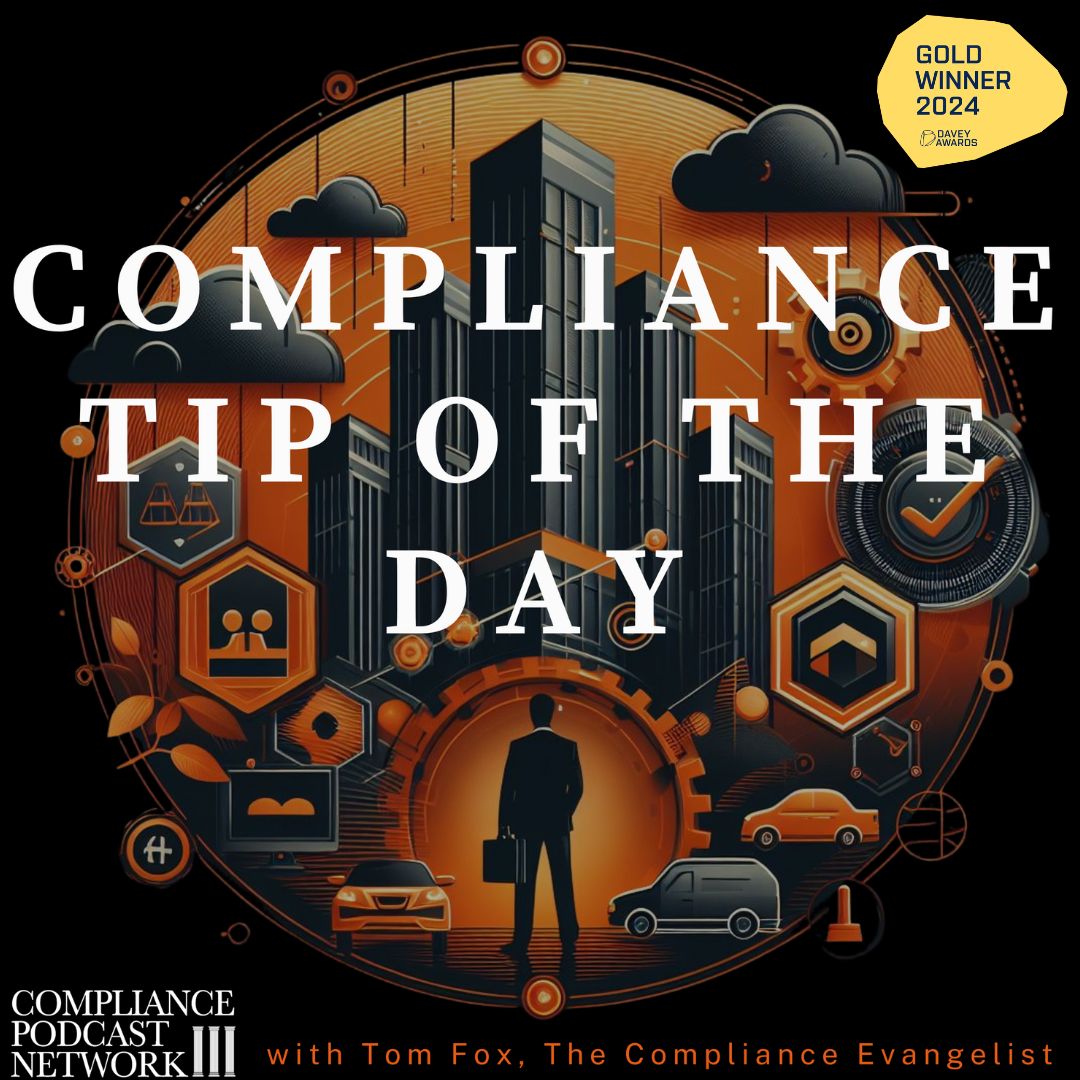In compliance, there is always excitement around the sleek dashboards, sophisticated visualizations, and predictive capabilities that data analytics bring. While these elements are undoubtedly valuable, compliance professionals must first navigate the decidedly “unsexy” side, the essential infrastructure and foundational aspects upon which these advanced capabilities rely. Matt Kelly and I recently explored this important yet overlooked aspect during a Compliance into the Weeds episode, emphasizing that without a robust underlying data infrastructure, even the most advanced analytics initiatives are doomed to fail. Our discussion was based on Kelly’s blog post on Radical Compliance.
The compliance function extends beyond measuring the effectiveness of our compliance programs. It entails understanding, assessing, and responding to the risks inherent within our broader organizations. These tasks require the correct data to be accurately captured, validated, and communicated effectively. Focusing only on end-stage analytics without addressing the foundational elements that feed these systems is akin to building a beautiful house without first laying a proper foundation. I wanted to explore these vital underpinnings and extract some practical lessons for today’s compliance professionals.
Lesson 1: Clearly Define Your Data Scope and Sources
The first crucial lesson delineates the data sources and scope for meaningful analytics. There are three critical groups of data stakeholders: the compliance function itself, business units (including both front-line operational teams and second-line functions such as HR, finance, and accounting), and the IT department responsible for data collection and management. Each entity provides a unique set of data relevant to compliance analytics. Compliance teams contribute oversight data related to compliance program performance and adherence; business units offer operational data reflecting day-to-day practices and processes; IT provides technological insights and system-generated records.
Understanding these data sets’ distinct nature and relevance allows compliance professionals to craft a focused data analytics strategy. A compliance officer who precisely defines what data is necessary will improve the accuracy and significance of analytics and streamline efforts to acquire and integrate this data. Furthermore, establishing clarity in the scope of required information and communicating this effectively fosters collaboration among various departments. This proactive communication reduces resistance, enhances cooperation, and ensures alignment across all parties, minimizing redundant data collection efforts or conflicting priorities. Defining the scope and source clearly from the outset is pivotal for long-term success in compliance analytics.
Lesson 2: Ensure Robust Data Validation and Reliability
Compliance analytics programs fundamentally depend on the robustness and reliability of the data feeding into analytic tools. No matter how advanced your AI or analytic models may be, the results generated rely entirely on the integrity of input data. (GIGO) Poor data invariably leads to misleading or erroneous conclusions, ultimately steering compliance teams down problematic pathways. This makes data validation an indispensable prerequisite rather than an afterthought.
Ensuring robust data validation and reliability means establishing systematic and meticulous processes to check for data accuracy, consistency, completeness, and timeliness. Compliance officers should prioritize working collaboratively with the business operations and IT departments to verify the integrity of the data at various collection points. Additionally, regular data audits and testing should become routine practice to detect inaccuracies or inconsistencies early. Proactive validation procedures, such as automated checks and regular reconciliations, help catch and rectify data quality issues before they can contaminate downstream analytic processes.
Given today’s rapid technological evolution, it is imperative that compliance teams continually adapt and refine their validation methodologies. Investing upfront resources and effort into rigorous validation practices ensures the sustainability and credibility of analytics-driven insights, making compliance analytics a trustworthy foundation for strategic decision-making and effective risk management.
Lesson 3: Navigate Change Management with Care
Change is constant in business, and the implications for compliance analytics can be significant whenever a business modifies its processes, systems, or technologies. Compliance analytics are highly sensitive to such shifts. Changes in business operations can disrupt previously reliable data streams, introduce inaccuracies, or necessitate entirely new types of data. This unpredictability represents a considerable risk, potentially turning carefully calibrated analytics pipelines into flawed sources of insights.
Compliance professionals must proactively integrate change management into their operational framework. Establishing clear protocols and robust channels of communication is paramount. Compliance teams should know upcoming processes, systems, or business practice changes. An established change management policy ensures that the analytics infrastructure can quickly adapt to business shifts without losing continuity or integrity in the data flow.
Compliance teams must regularly engage with business and IT units to anticipate possible disruptions and strategize solutions proactively. This might include altering data capture methods, updating analytic algorithms, or recalibrating analytic models to align with evolving realities. Effective change management protects the accuracy and usefulness of analytics and demonstrates compliance’s agility and responsiveness, reinforcing its critical strategic role within the broader organizational context.
Lesson 4: Cultivate Relationships with Key Data Stewards
Relationship-building with key data stewards within the organization is often overlooked but critical. Particularly in larger enterprises, master data management roles or teams serve as gatekeepers, responsible for overseeing, maintaining, and controlling data repositories that power analytics initiatives. Compliance officers must identify and actively cultivate relationships with these individuals, essential allies in accessing, structuring, and enhancing the data compliance teams need.
These relationships enable compliance officers to navigate bureaucratic obstacles more effectively, rapidly gain necessary approvals, and obtain access to critical data resources. Further, engaging with these stewards allows compliance professionals to leverage their technical expertise to fine-tune data structures and formats, facilitating more efficient and accurate analytic outcomes. In smaller or mid-sized companies, where such formalized roles may not exist, identifying the individuals who functionally fulfill these stewardship duties becomes even more vital. Personal rapport and trust-building can significantly expedite collaborative efforts in these scenarios.
Establishing strong, mutually beneficial relationships also fosters better responsiveness and support from these key stakeholders. Compliance teams can position themselves as partners who add reciprocal value, demonstrating how compliance-driven analytics address regulatory imperatives and provide strategic insights beneficial to broader organizational goals. This collaborative stance fosters lasting partnerships that empower compliance analytics and elevate the compliance function’s credibility across the organization.
Lesson 5: Align Compliance Data Analytics with Broader Business Objectives
Your compliance program must align your organization’s compliance analytics with the organization’s overall strategic goals and risk management framework. Compliance analytics should never operate in isolation but must directly support and complement broader business objectives. By integrating compliance risk management with enterprise-wide strategies, compliance professionals can ensure their analytics drive real organizational value, enhance risk mitigation capabilities, and facilitate informed decision-making processes.
Compliance professionals must articulate how compliance analytics directly align with and contribute to overarching business strategies and goals. Rather than framing analytics initiatives solely regarding regulatory compliance, professionals should present them as crucial tools for strategic business management. Compliance analytics can identify emerging risks, provide early warnings of operational inefficiencies, and generate insights that inform strategic and operational planning. Compliance officers secure stronger executive buy-in and cross-departmental support by linking compliance analytics initiatives to broader organizational imperatives such as improved operational efficiency, enhanced reputation management, reduced financial risk, and better-informed decision-making.
Moreover, this alignment facilitates greater transparency and cohesion within the organization. It ensures compliance analytics remain relevant, agile, and responsive as business objectives and external risk environments evolve. Positioning compliance analytics as an integral component of corporate strategy demonstrates compliance’s value as a regulatory necessity and a strategic business partner, fundamentally intertwined with the organization’s success.
Final Thoughts
Compliance professionals often gravitate toward the cutting-edge features of data analytics, and understandably so, predictive modeling, AI-driven insights, and dynamic visualizations are exciting and impactful tools. However, the equally critical foundational work required beneath these capabilities must be performed.
Compliance teams must give equal weight to the less glamorous but no less essential tasks of defining their data scopes, validating data reliability, managing changes adeptly, nurturing relationships with key data personnel, and aligning their analytic efforts with corporate objectives. Compliance professionals can build robust, effective programs that deliver real, lasting value by balancing the exciting potential of advanced analytics with disciplined attention to these fundamental infrastructure issues.
The compliance function that overlooks the “unsexy” details does so at its peril. After all, a dazzling analytics engine is worthless without the solid groundwork to support it. Let’s commit to embracing these foundational elements with the vigor and attention they deserve.
After all, the most powerful compliance insights often lie hidden beneath the surface in the careful, unglamorous cultivation of robust data infrastructure.








